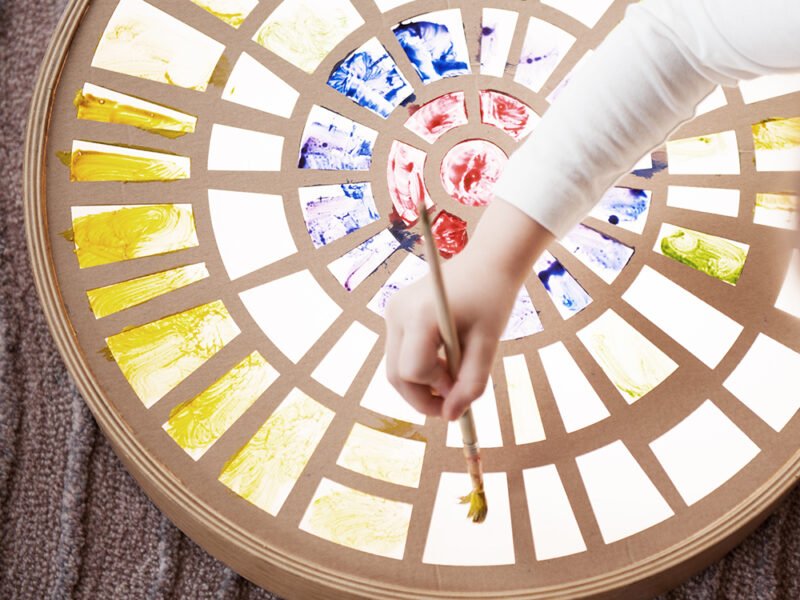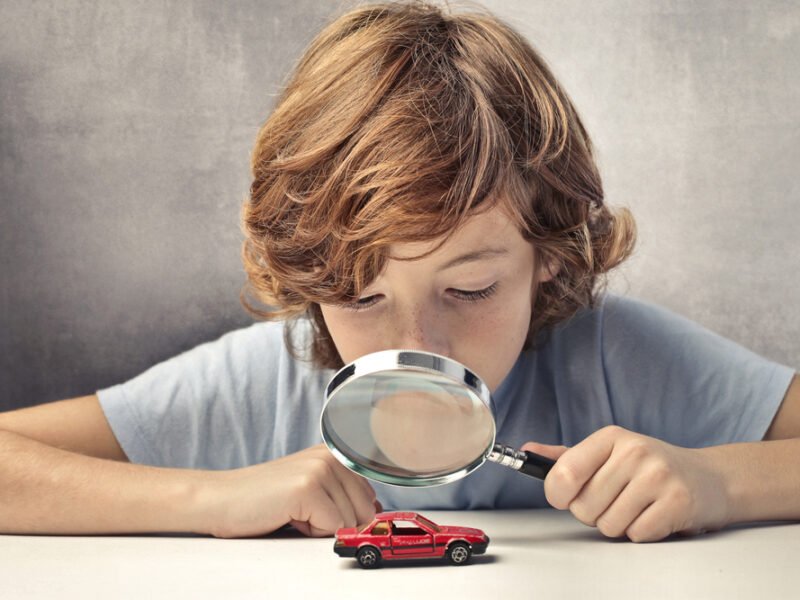Great gift always creates an experience that involves two sides, a giver and a receiver. What makes every one happy and how can we create an amazing gifting experience for both?
I spoke with Patrick Kucharson, Gift-Giving Coach, about gifts that create memorable emotions. What are the key parts of great gifting? What are the most common pitfalls in making the gifting decisions? Patrick knows quite a few stories about gifting experiences, both uplifting and… funny!
Hello! Tell us about yourself and your background. How did you come up with an idea of gift coaching?
Following a 7 year break from being an entrepreneur while working as a business advisor at a venture capital firm, I was ready to be a founder again in early 2022. I took several months to consider what problems I wanted to focus my efforts on solving and ultimately zeroed in on the pain points surrounding gift-giving.
By nature, I’m a B- gift-giver who waits until like 2-3 weeks before a gift date and then essentially sprints to a gift. It’s exhausting, takes the fun out of gift-giving, and often leads to gifts that feel more like check-the-box exercises (as opposed to something meaningful).
In my own personal quest to make giving great gifts easier, I found a simple shortcut. In summary, I started collecting stories of the best gifts people have ever received and then recreating my own versions of them.
How did that change your own life and gifting experiences?
I’m now regularly experiencing 2 of life’s greatest feelings:
- The feeling of relief when you have great gift ideas far in advance
- The feeling of being overwhelmingly excited to give a great gift
After accumulating an ever-expanding library of great gift stories that was working as a successful shortcut for me, I decided to extend this value to others by launching the free weekly Better Gift Coach newsletter. Every Tuesday morning, the newsletter provides a story that highlights copyable gift idea + guidance on how subscribers can create their own version of it.
If you could deconstruct a great gift, what would be the most precious elements of it?
In my opinion, the most precious element of a great gift is lasting value for the recipient. That value can come in many practical and/or emotional flavors. As an example of lasting practical value, consider a reliable gardening tool that lasts for decades. As an example of lasting emotional value, consider the surprise flowers someone gave you 10 years ago that are long gone, but you still remember with great warmth.
What is more valuable – a great gift or a story that we tell?
Good question. For a truly great gift, it’s difficult to separate the actual gift from the story/memories attached to it. I guess since the story/memories often outlast the gift, perhaps the lasting emotional value of the gift is more valuable than the actual practical value of it.
How do we typically make decisions to buy gifts? And where in that process we fail to create the best gifting experiences?
Everyone is different. For someone whose love language is gift-giving, the decisions they make when buying gifts are different from someone who isn’t energized by gift-giving.
The most common gift-giving fail is when the giver places more value on the moment of exchange than they do on the lasting value the gift will offer the recipient.
Who are the best gift givers? What do they do differently?
I believe that the best gift-givers are folks who, by nature, are emotionally energized by gift-giving. Some describe this as those who have gift-giving as their love language.
For those like me whose love language isn’t gift-giving, the best gift-givers from this group are the folks who find shortcut/hacks to outperform their nature.
I also find that the best gift-givers, regardless of their love language, are the folks who never hesitate to ask “what do you want?”. Most studies find that, in general, gift recipients are more appreciative of gifts they request versus unrequested/surprise ones.
Can you tell examples/stories of the best and the worst gifts?
In my weekly newsletter, I share examples/stories of the best gifts people have every received. Most of the best gifts have lasting practical AND emotional value.
Here’s a short story of one of the best gifts I’ve ever come across:
Over the course of a couple years, my friend took funny action-shot pictures of his wife eating memorable meals at restaurants. Imagine photos of her in the middle of big bites with sauce on her face. He eventually found recipes for the dishes online and assembled a cookbook that had her funny pictures next to each recipe. Every time they open this cookbook and make a dish, they relive the memories of that meal together. This cookbook is one of her favorite things in the world.
Here’s a first person account of one of the worst gifts I’ve come across (submitted by one of the newsletter subscribers:
The worst gift I ever received was definitely that time I opened up naughty lingerie from…my mother in law. I was mortified. And to top it off we all take turns opening gifts so everyone can look to see what we got. My kids were eager with anticipation to see what was in my box. Obviously my response to them was just go ask your Nana and let her tell you. My husband was mortified as well, and obviously confused given the random choice of gift for me. I’m typically an easy person to get a gift for and she had never given me anything remotely like that. It will always be the worst gift I’ve ever been given.
If I’m thinking about a valuable gift to my child and I know that toy guns would make him really excited, how would you advice aligning my values with my child’s wishes?
As a parent of two very young children, I haven’t personally navigated this situation next. My gut feeling is that, when likely presented with this conundrum in the not-so-distant future, I’ll determine that instilling my values into my children as a parent should supersede my child’s desire for an individual gift. As I reflect upon the greatest “gifts” my parents ever gave me, I strongly feel that I wouldn’t trade the values they instilled in me for anything they ever put under the Christmas tree.
Gifting always involves two, a giver and a receiver. What makes every side happy and how can we create an amazing gifting experience for both?
At baseline, a gift-recipient will be happy if given gifts that have lasting value (practical and/or emotional). At baseline, gift-givers will be most happy if they get to witness the gift-recipient recognize that lasting value. Once the gift-recipient’s baseline happiness requirements are met, the gift-giver can take it to the next level by creating a memorable moment of exchange (humor, theatrics, fireworks, etc.). The gift-recipient can also go beyond the baseline happiness requirements of the gift-giver by doing things like making a habit out of sending continued photos to the gift-giver of them appreciating the gift over the years.





